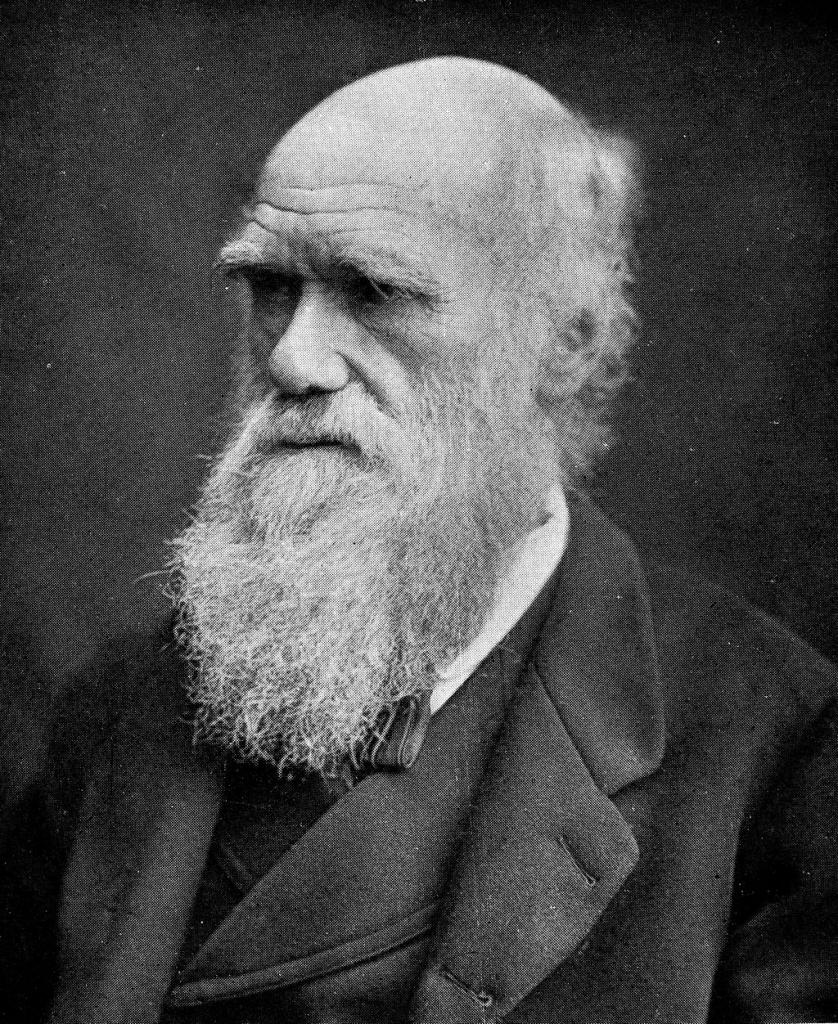University of Indiana medical school and philosophy professor Richard Gunderman points that out in his essay for Law & Liberty entitled Man, Descending. He notes that while Darwin’s Origin of Species, published in 1859, is his most important scientific work, his later book, The Descent of Man, whose 150th anniversary is this year, which applies his theories to human beings, contains “Darwin’s most radical ideas concerning natural selection’s implications for human nature and the moral and political dimensions of human life.”
“The Descent ranks as one of the most subversive texts in human history,” says Dr. Gunderman. By arguing that everything about human beings can be accounted for by naturalistic causes and by applying natural selection to human life and social progress, Darwin undermines most human values. “With a few strokes of a pen,” Dr. Gunderman says, “Darwin lays the groundwork for the disenchantment of human nature and human affairs.”
He quotes Darwin, from The Descent of Man. (Note: I quote Darwin’s offensive language only for historical and illustrative purposes).
With savages, the weak in body or mind are soon eliminated; and those that survive commonly exhibit a vigorous state of health. We civilised men, on the other hand, do our utmost to check the process of elimination; we build asylums for the imbecile, the maimed, and the sick; we institute poor-laws; and our medical men exert their utmost skill to save the life of every one to the last moment. There is reason to believe that vaccination has preserved thousands, who from a weak constitution would formerly have succumbed to small-pox. Thus the weak members of civilised societies propagate their kind. No one who has attended to the breeding of domestic animals will doubt that this must be highly injurious to the race of man. It is surprising how soon a want of care, or care wrongly directed, leads to the degeneration of a domestic race; but excepting in the case of man himself, hardly any one is so ignorant as to allow his worst animals to breed.
To account for why this strange and overall harmful behavior might be, Darwin blames the “instinct” of sympathy. Its survival advantage, he suggests, was to help human beings form societies, though it has been taken to extremes.
The aid which we feel impelled to give to the helpless is mainly an incidental result of the instinct of sympathy, which was originally acquired as part of the social instincts, but subsequently rendered, in the manner previously indicated, more tender and more widely diffused. Nor could we check our sympathy, even at the urging of hard reason, without deterioration in the noblest part of our nature. The surgeon may harden himself whilst performing an operation, for he knows that he is acting for the good of his patient; but if we were intentionally to neglect the weak and helpless, it could only be for a contingent benefit, with an overwhelming present evil. We must therefore bear the undoubtedly bad effects of the weak surviving and propagating their kind; but there appears to be at least one check in steady action, namely that the weaker and inferior members of society do not marry so freely as the sound; and this check might be indefinitely increased by the weak in body or mind refraining from marriage, though this is more to be hoped for than expected.
Here we see Darwin as a man of his time and culture, invoking “the noblest part of our nature”–though his radical revision of what that nature is leaves little room for nobility–and advancing the quaint Victorian assumption that reproduction will always be associated with marriage.
What he does, though, is lay the foundation for the various movements and impulses that comprise Social Darwinism. “Many such views stress competition between individuals in laissez-faire capitalism,” says the Wikipedia article on the subject, “while others, emphasizing struggle between national or racial groups, support nationalism, authoritarianism, eugenics, racism, imperialism, communism and/or fascism.”
Concludes Dr. Gunderson,
The most urgent question is not whether Darwin had it right but whether his account eliminates all possibility of right (and wrong). If survival is life’s be-all and end-all, then we are living in an anti-natural way and precipitating our own demise. Goodness and mercy cannot stand. On the other hand, if right somehow precedes or supersedes natural selection, then a spirit such as love might remain our guide.
Darwin at least faced up to the broader implications of his biological theory. Most people today who accept his theories about biology draw back from applying them to society, letting the poor, the disabled, and the weak die out, and not allowing “the worst animals to breed.” Rather, even secularists are promoting an ethos of benevolence, equality, and justice that derives ultimately from the religion they think they can do without. We’ll see how long that lasts, once that moral capital is spent and its source forgotten.
I would add that another odd behavior of so many Darwin-believing secularists, in addition to clinging to social altruism, is their indifference to reproduction. The reason natural selection is the mechanism for evolution, according to Darwin, is that it ensures that the strongest, or best adapted, individuals reproduce at a greater rate. Their DNA becomes a bigger part of the gene pool, and so the species evolves.
Unlike animals, many people today do not want to reproduce themselves. They often do not want marriage, and even if they do, they do not want to have children. Some of our most ingenious technological and social innovations–contraceptives, abortion, homosexuality, pornography–are devoted to making it possible to have sex without conceiving children. That would seem to be incompatible with Darwinism.
To be sure, many human beings still want children. But that impulse often comes from those whom our elite would consider to be “weaker”–the working class, religious people, racial minorities, immigrants, the poor–while those who consider themselves the “stronger”–the affluent, well-educated, and white–have fewer and fewer children. That would seem to be incompatible with Darwinism and with a belief in Darwinism.
Photo: Charles Darwin, CC BY 4.0 <https://creativecommons.org/licenses/by/4.0>, via Wikimedia Commons













